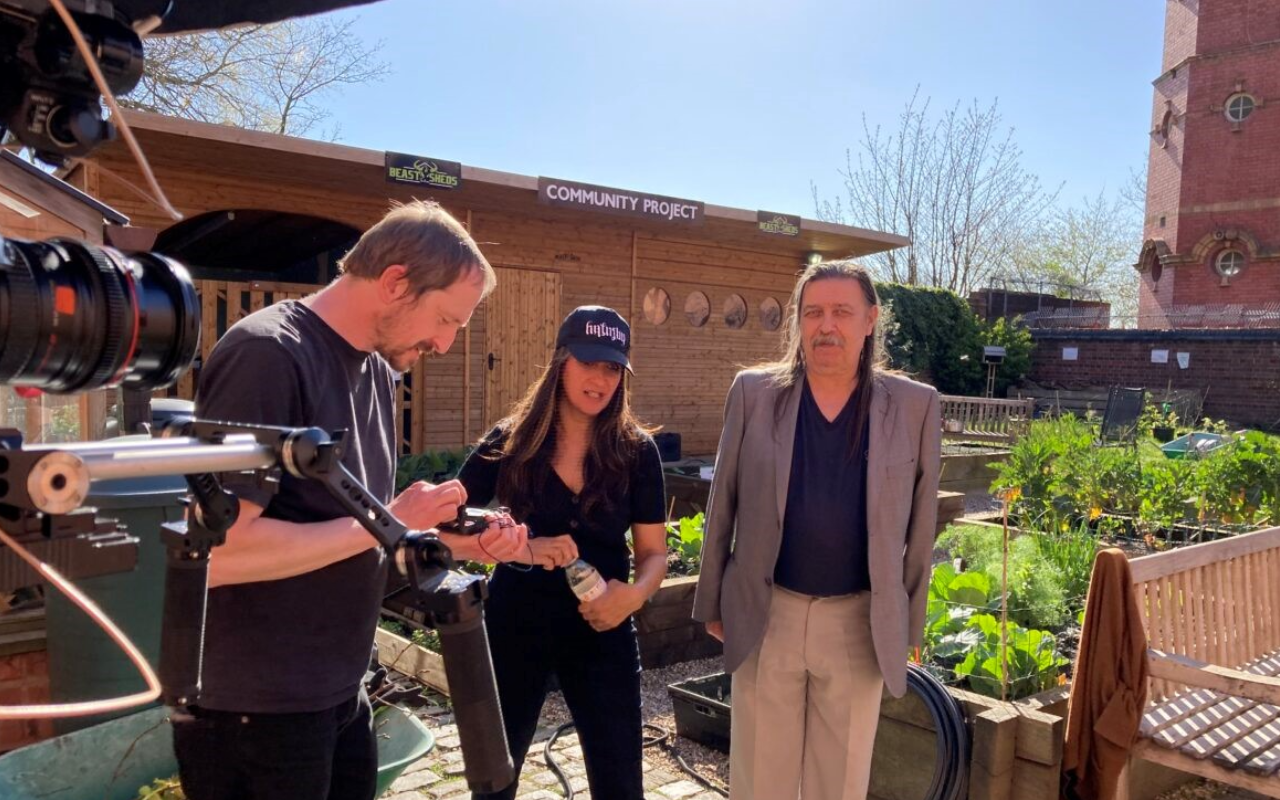
Grand Union’s The Growing project documentary
Photo: Jo Capper/Hannah Adereti
Building on the positives
Audiences have had almost 24 months of remote engagement with culture. It’s now time to share evidence, learning, success and failure for the post-pandemic landscape, argues Fiona Morris.
After two years, it’s time to shift gear and start thinking about the positives we can take forward and leave aside the reactive approach most of us had to adopt of necessity during the pandemic.
This is an opportune moment for positive radical transformation in how we approach audiences, and what we offer them – and to make creative work more accessible, to diversify and extend our audience reach and to encourage a longer-term, sustainable approach to our artforms.
Breaking down the echo chamber
At The Space, our focus is on audience development. We know how vital it is to broaden and diversify access to the arts and to break down the echo chamber. Whatever the project, when considering new content, we advise asking these questions:
- Who is it for?
- What do you want communicate?
- Why are your audience going to stop and take notice? (particularly given the noise and volatility of the online landscape).
It has been an eye-opening time in the digital world. For many artists and organisations, the most significant revelation has been increased accessibility. Providing remote participation when physical wasn’t possible has widened the horizons of who can engage, bringing possibilities for growth and creativity around the world.
A realistic and sustainable approach
Online engagement doesn’t have to be complicated. It’s remarkable what a realistic and sustainable approach to digital can achieve.
In 2021, The Space worked with Grand Union on The Growing Project, a community-led scheme transforming the lives of Birmingham’s vulnerably-housed by gardening together. With our help, they produced a documentary to tell their own story and, as a result, they saw audience growth on social media. They were delighted by the depth of engagement and the opportunities for collaboration that opened up.
The number of volunteers and people wanting to get involved in Grand Union’s project increased and the documentary was nominated for an award. The project was also featured in Google Arts & Culture’s Garden’s United.
But success is not always about numbers. If you’re strategic about building an engagement base and you plan for content to continue, small numbers are fine. During the first lockdown, we supported a library project in Lancashire in which performers recorded stories, posted on Facebook and YouTube, for families in isolated communities to enjoy at home. Each week, the numbers increased, and the growth was steady and sustainable.
Focus on the long-term rewards
The value systems in the digital sphere are often assessed by different criteria from live work – and I would urge caution here. In the same way you might acknowledge that giving free or more affordable theatre tickets to students helps build their long-term engagement, so it’s also fundamental to assess the long-term potential reward of digital work by similar standards.
If, by making a digital recording of a live work, you then make that accessible to people who would not have been able to attend, there’s great value in that. It doesn’t have to be live or digital. Making your work available online can complement live audiences and vice versa.
Building skills and levelling up
Digital content creation can also help raise the ambitions and awareness of artists and smaller organisations – enabling a levelling up of skills, reach and visibility. For example, Javaad Alipoor presented his show Rich Kids: A History of Shopping Malls in Tehran online. It opened up international conversations, helping transform his development much sooner than he anticipated.
Likewise, Laura Horton’s Theatre Stories started as a small digital platform to amplify the untold stories of people rarely heard. Soon it grew across a wide network of UK theatres, companies and individuals. Laura was named in The Stage 100 for her work and the campaign steadily opens up new possibilities and relationships.
Listening to audiences and starting conversations
For larger organisations, online forums provide opportunities to generate conversations about their work and collections with audiences. Some are reluctant to step inside grand buildings or unknown spaces. Such barriers can be softened by an online interface showing that the stories are more familiar than they realise.
In these instances, digital spaces are used not as passive content but interactively, as a means to hear from people, enabling them to have their opinions heard. And even if it isn’t always what organisations want to hear, it’s a good idea to listen.
At The Space, we are well-placed to help people do things they don’t know how to do. No one needs to have all the skills and knowledge, just an interest in exploring an audience, format or new technology. We want learning to be shared so that the sector can grow.
This means reaching out and being curious about what other artists and institutions are reaching out for. We know this from our work on strategic digital mentoring with Creative Scotland. Bringing organisations and artists together in peer-to-peer sessions to discuss their work, their challenges and experiences is proving enormously valuable.
A new journey begins
This is an exciting new chapter for the sector. We look forward to seeing people experiment with what experiences of the future might look like. It’s clear that something fundamental has changed over the last 24 months. Uptake, understanding and willingness to engage have all increased. We’re just at the beginning of our journey to work out how inspiring that might be.
Fiona Morris is Chief Executive and Creative Director at The Space (Digital Arts).
![]() www.thespace.org
www.thespace.org
![]() @thespacearts | @FionaMorris_
@thespacearts | @FionaMorris_
This article, sponsored and contributed by The Space, is part of a series spotlighting new ways of creating and distributing digital content, and exploring the wealth of new technologies and platforms coming online.
Join the Discussion
You must be logged in to post a comment.